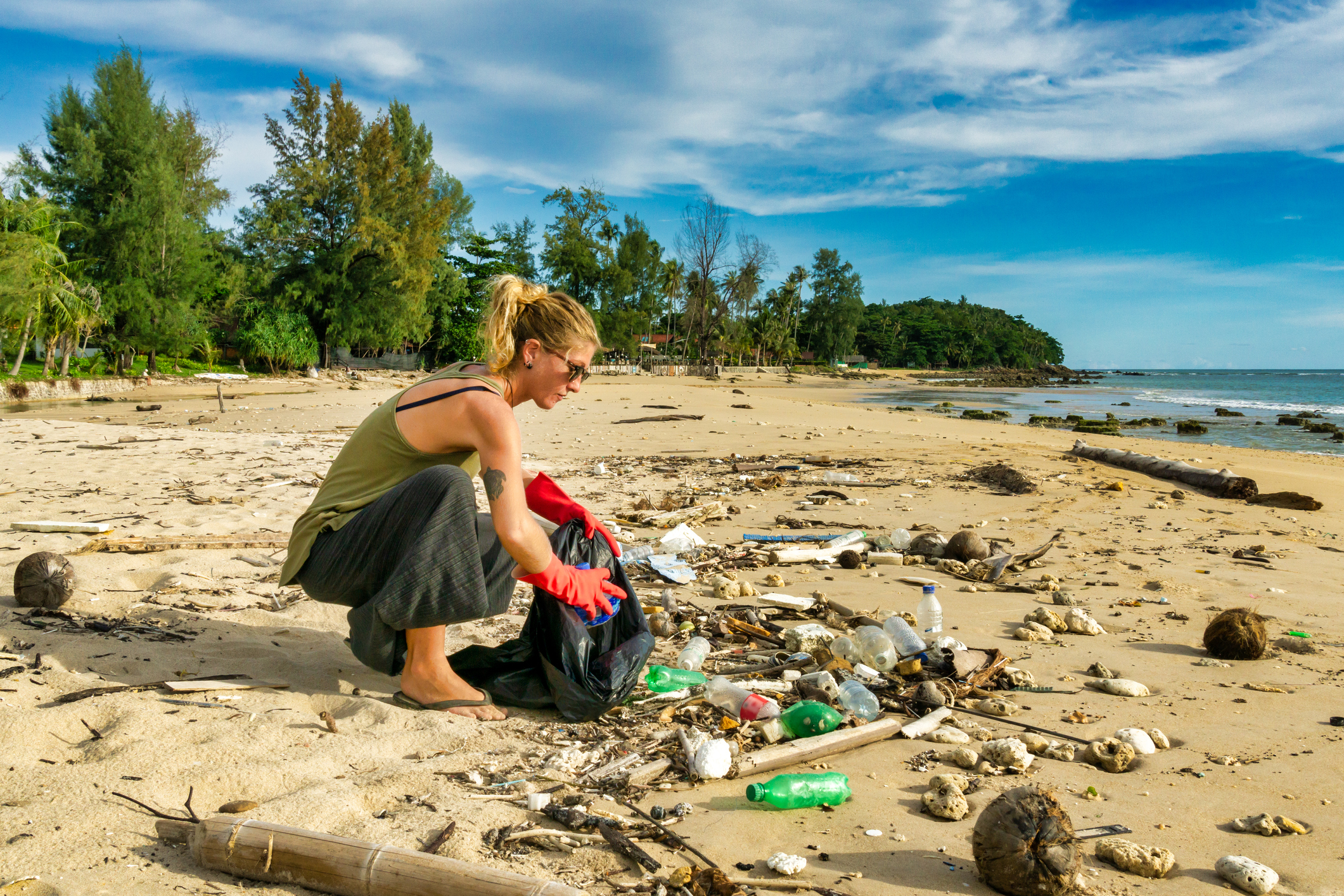Happy Breath will pay your shipping with orders of $100 or more (mainland US orders only).
Tails from the trail and tips on training your human

7 Ways Our Oceans are in Danger and What You Can Do To Help

The ocean is where life began, and it’s the only thing that can sustain our lives. It provides us with oxygen, food, water and jobs. But sadly, our oceans are in danger.
Ocean waste; pollution from plastics and other debris has made its way into oceans causing them to be dirty and unhealthy for humans or animals to live in. A study of more than a dozen countries found that people living near marine areas were most likely to report respiratory problems including bronchitis due to pollution exposure.
The United States alone produces about 262 million tons of plastic waste every year. One person generates an average of two pounds of trash per day. The good news is that there’s plenty we can do as individuals to help improve the state of our ocean’s health, without sacrificing our lifestyle.
Let’s take a look at 7 ways you can make small changes which will have a big impact on the future of our planet’s blue heart.
Minimize Your Carbon Emissions
Humans have been burning fossil fuels to create excess heat and warmer oceans. The carbon footprint that we are creating will affect the ocean tremendously, changing how marine species reproduce as well as speeding up sea-level rise which is already happening at a quick pace due to climate change.
To decrease these effects on our beloved planet:
- Turn off lights when you leave your room or unplug electronics like chargers when they’re not in use.
- Adjust your thermostat so it matches what season it is outside, considering many people tend to run their A/C all year round.
- Walk or ride bikes instead of using cars if possible for short distances such as going from point A to point B around town.
- Demand renewable energy options in community buildings.
Choose Sustainable Seafood
Seafood is an important part of the diet for many people, but sustainable fisheries are dwindling. These days three quarters of global fishing fleets are overworked and depleted due to unsustainable practices like bottom trawling or long-lining which can damage ocean floors so much that they’re unable to regenerate themselves.
You can help save what little we have left by carrying your sustainable seafood card everywhere you go or asking restaurants where they buy from before ordering something off the menu.
Use an app like Seafood Watch that tells consumers which products come from unsustainable sources. This can help in contributing no further harm to our aquatic ecosystems while searching through grocery stores’ freezer sections for more eco-conscious choices when it comes to purchasing frozen goods.
Prioritize Biodegradable Plastic Products
Did you know that plastic debris in the ocean can contribute to choking and starvation of marine animals? It often resembles their food, so they don’t realize it is not edible until digested.
Use cloth grocery bags, biodegradable plastics or reusable water bottles instead to prevent unnecessary deaths among these beautiful creatures.
Refuse Items That Exploit Marine Life
Coral reefs and marine populations are hugely important to all of us. They provide a refuge for countless species, their beauty inspires awe in even the most jaded observers, they support our bustling tourism industry, but
The less we purchase items made with tortoiseshell hair accessories and shark products the more likely these ecosystems can survive long into the future.
Make Ocean-Friendly Pet Food Choices
The decision to feed your pet with cat food or seafood can determine the impact on the environment. When looking for a sustainable diet, consider what is in season and locally produced so as not to use up natural resources needlessly.
This will also help reduce carbon emissions which contribute significantly to global warming due to transporting goods from one country across another’s borders.
Practice Ocean-Friendly Travel
Be mindful of the water when you’re engaging in a recreational activity. Don’t throw anything overboard and be aware that marine life is around us at all times, whether we can see it or not.
Don’t forget that if you still feel like heading out for some fun on the high seas this summer, look into an eco-friendly option first so everyone can enjoy their vacation with less guilt.
You can take a trip without harming wildlife or the environment when you book with responsible travel companies that are committed to protecting animals, empowering local communities, and using guides who know local rules.
Once you arrive at your destination, be respectful of marine life like nesting sea turtles on beaches and sensitive reef systems such as coral reefs.
Conserve Water
No matter what you do or where you go, water will eventually find its way to the ocean. With so many lakes and rivers becoming polluted and algae blooms forming due to chemicals that can kill marine life, we all need to take a stand for clean water.
Here are some simple ways:
- Take shorter showers
- Collect rainwater in a barrel for watering plants
- Limit laundry days only on full loads of clothing instead of every day
- Wash small items by hand
Conclusion
We have a responsibility to make sure that our planet can continue to provide for future generations. By making small changes to reduce ocean waste, you are doing more than just good for the environment, you’re giving back and ensuring that we all live on this blue heart together. What is one thing from the list of 7 ways which resonates with you? Let us know!